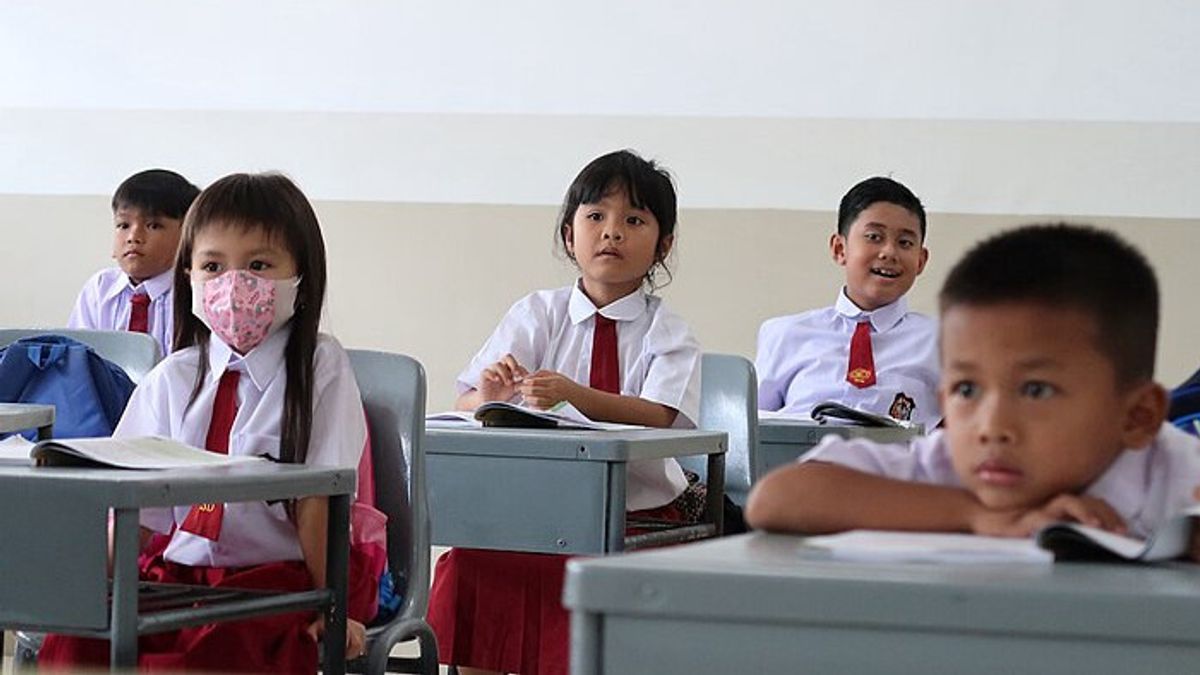JAKARTA Memories of today, seven years ago, June 12, 2017, the Minister of Education and Culture (Mendikbud), Muhadjir Effendy officially issued Ministerial Regulation (Permen) Number 23 of 2017 concerning School Day. The five-day policy of schools is in it.
Previously, the government's plan to implement a five-day school policy drew criticism. This policy makes children go to school for a longer time, eight hours. As a result, children cannot help their parents and study religion.
The six-day school policy is often used by schools in Indonesia. This condition makes students and teachers get only one holiday. However, the time used is less than eight hours. The teaching is considered effective.
Different conditions were then offered by the Minister of Education and Culture Muhadjir. He plans to make legal products so that the school day only lasts five days. The five-day school policy will take eight hours a day. This condition is considered as a form of learning effectiveness.
Instead of getting a lot of support, the plan of the Minister of Education and Culture Muhadjir was actually flooded with criticism. The sound of criticism arose from Nahdlatul Ulama (NU) to the Indonesian Ulema Council (MUI). They consider school time to be eight hours a day to bring a lot of harm, rather than benefits.
Children are considered to have no time to study religion. The narrative is echoed because on average Indonesians study religion in the afternoon. The five-school policy will not be able to accommodate this.
Another problem with the five-day school policy is considered to make children not have much time to meet and help their parents. Not to mention the problem of children being vulnerable to stress. A series of problems made many people ask the Ministry of Education and Culture to review their plans.
The government is expected to pay attention to matters of healthy time to seek knowledge. The Ministry of Education and Culture seems to only consider urban children in making rules, not students who are in remote villages with inadequate learning facilities.
SEE ALSO:
"The practice of education is such as madrasah diniyah and pesantren, which usually starts with students after returning from public schools (SD, SMP, SMP). I can't imagine how much madrasah diniyah is managed independently and voluntarily by the community will close.."
How many teachers have been educating students with sincerity will lose their field of service. This is very sad and will become a dark record for the world of Islamic education in a country based on Pancasila," said Deputy General Chairperson of MUI, Zainut Tauhid Sa'adi as quoted on the Kumparan page, June 11, 2017.
Minister of Education and Culture Muhadjir did not worry too much about those who were against the five-day school policy. Muhadjir is of the view of schools for eight hours a day as the formation of student characters.
As a result, Muhadjir also signed the Minister of Education and Culture Regulation Number 23 of 2017 concerning School Day on June 12, 2017. This means that the five-day school policy with eight hours a day is officially present. The regulation will be implemented starting in early July.
"Don't imagine students will be in class all day long. Later teachers will encourage students to study with various methods such as role playing, projects, and from various sources of learning, it can be from artists, farmers, ustaz, pastors. Many sources can be involved, but teachers must remain responsible for their student activities".
"For example, if in an area there is a tradition of children studying at madrasah diniyah at late hours, then these hours must be converted as part of the eight hours of lessons. In some areas it has implemented like that and I think it is very good," Muhadjir explained as quoted by the Republican website, June 12, 2017.
The English, Chinese, Japanese, Arabic, and French versions are automatically generated by the AI. So there may still be inaccuracies in translating, please always see Indonesian as our main language. (system supported by DigitalSiber.id)

















